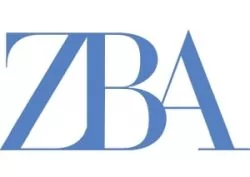Introduction
There has always been a tension between the doctrine of party autonomy and the high principle of independence and impartiality expected of an arbitrator. Courts have attempted to balance the operation of unilateral arbitral clauses against the requirement of fair and just procedure, particularly where the agreement to appoint a sole arbitrator is vested with one party. The conflict between party autonomy and fairness has become apparent in India due to the customary practice of arbitration clauses in government contracts providing for the government to unilaterally appoint an arbitrator.
The Supreme Court in Perkins Eastman Architects DPC & Anr vs. HSCC (India) Ltd.1 ("Perkins") by invalidating such a clause ruled in favour of independence and impartiality and held that a party interested in the outcome of the dispute was ineligible to appoint a sole arbitrator under Section 11 of the Arbitration and Conciliation Act, 1996 ("Act").
Brief Facts
The point of contention in the present case arose from the arbitral clause which conferred on the Chairman and Managing Director (CMD) of HSCC (India) Ltd, the unilateral choice to appoint an arbitrator. In contravention of this clause the arbitrator was appointed not by the CMD but by the Chief General Manager. Perkins being aggrieved by such appointment applied to the court under Section 11 of the Act (default power of appointment) to appoint another sole arbitrator.
Party autonomy v/s Impartiality
The Perkins judgement provides an interesting analysis of the tension between party autonomy and principles of impartiality and fairness, set against the backdrop of the eligibility of an interested party to appoint a sole arbitrator.
Section 19 of the Act mirrors Article 19(1) of the UNCITRAL Model Law and provides for party autonomy- in that parties are subject to fairness, free to agree on arbitral procedure. This freedom to regulate procedure inherent in arbitration extends to the choice of appointment of an arbitrator, but as cautioned by the Supreme Court has certain limits and boundaries that cannot be transgressed. The Supreme Court's judgement in this case is a timely reminder that consensual private adjudication cannot contravene procedural fairness.2
Relying on its earlier judgment in TRF Limited3, the Supreme Court declared that a person who is disqualified and disentitled to act as an arbitrator under the Seventh Schedule of the Act, is equally ineligible to nominate any other person to act as an arbitrator.4 The Supreme Court accordingly struck down the appointment of the arbitrator nominated by the Chief General Manager not just on the ground that he was the incorrect appointing authority under the arbitral clause, but on the wider principle of independence and fairness mandated by Article 19 of the Model Law.
A similar view was taken by the Delhi High Court in Gogoal Hydro5 holding that an executive of a Public Sector Undertaking (PSU) as well as his nominee would be ineligible to be appointed as a sole arbitrator in a dispute concerning such PSU.
The Bombay High Court in Lite Bite Foods6 following the ratio of Perkins case, invalidated an arbitration clause authorising a party to appoint a sole arbitrator. According to the Bombay High Court, party autonomy regarding arbitral appointments must yield to principles of neutrality, independence and fairness.
Conclusion
Perkins and TRF Limited illustrate a clear principle of law that invalidates any arbitral agreement that vests the power to appoint an arbitrator solely in one party. Many unilateral arbitral clauses in India will need to be revisited in light of these recent rulings.
Footnotes
1 Perkins Eastman Architects DPC & Anr vs. HSCC (India) Ltd [Arbitration Application No. 32 of 2019, decided on 26,11.2019, Supreme Court ]
2 Bharat Broadband Network Limited vs. United Telecoms Limited [(2019) 5 SCC 755]
3 TRF Limited vs. Energo Engineering Projects Limited (2017) 8 SCC 377
4 Ibid.
5 Gogoal Hydro Private Limited vs. Bharat Heavy Electricals Limited [Arbitration Petition No. 6 of 2019, decided on 29.11.2019, Delhi HC]
6 Lite Bite Foods Private Limited vs. Airports Authority of India [Comm Arbitration Application (L) No. 495 of 2019, decided on 04.12.2019, Supreme Court]
Originally published December 18, 2019.
The above is a generic analysis and should not be regarded as a substitute for specific advice based on the facts of a client's objectives and specific commercial agreements reached. Please do reach out to us at mail@zba.co.in for any queries.

